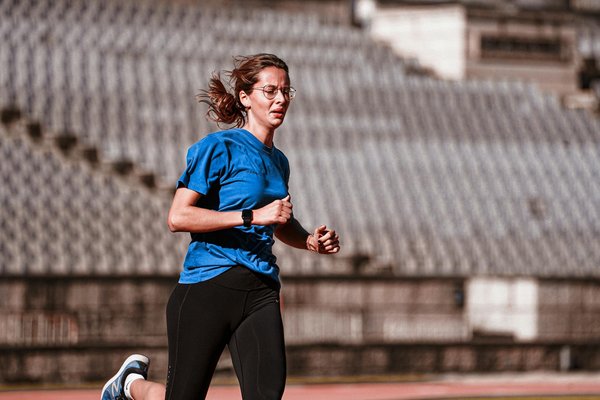The Influence of Combat Sports on UK Athletic Performance
Combat sports UK play a significant role in cultivating athletic excellence, contributing noticeably to overall sports performance benefits. These disciplines, including boxing, judo, and MMA, are prominent across the country, attracting participants who seek rigorous physical and mental challenges.
Combat sports UK emphasize core physical attributes such as strength, agility, endurance, and coordination. For instance, training regimes focus on rapid reflex development and muscular endurance, which directly enhance an athlete’s ability to perform under pressure. These skills are transferable and have been shown to boost performance metrics in other sports. Enhanced cardiovascular health from combat sports training supports stamina, while improved balance and flexibility reduce injury risk, fostering long-term athletic development.
Several studies highlight that athletes involved in combat sports UK exhibit superior anaerobic capacity and muscular power. This translates into faster sprint times and increased explosiveness in sports like rugby and football, showcasing the broad influence of combat training on athletic excellence. Incorporating combat sports into training routines is a strategic move to unlock hidden potential and refine overall sports performance benefits for UK athletes.
Physical and Mental Benefits Gained from Combat Sports
Combat sports offer remarkable physical benefits that extend beyond typical exercise routines. Practitioners experience significant improvements in strength, speed, and agility through consistent training. These enhancements not only boost athletic performance but also translate into everyday functional fitness, supporting better movement and endurance.
Beyond the physical, combat sports cultivate vital mental resilience. Participants learn discipline and sharpen focus as they master techniques and strategies. Managing the intensity of combat training also promotes stress management skills—training sessions become outlets for releasing tension while simultaneously building emotional control.
Fitness through combat sports is holistic. Body composition improves with regular practice, often leading to lower injury rates due to enhanced muscle balance and joint stability. This combination of mental and physical development helps athletes maintain a well-rounded, sustainable fitness level that benefits long-term health.
The dual nature of combat sports—honing both body and mind—makes them an effective avenue for those seeking comprehensive wellness. By strengthening the body and fortifying mental resilience, participants gain a balanced foundation for enduring health and performance.
Contributions of Notable UK Combat Sports Athletes
Understanding the impact of British fighters in the global arena
British fighters have left an indelible mark across boxing, MMA, and judo, showcasing exceptional talent and commitment. In boxing, UK combat sports champions like Tyson Fury and Amanda Serrano exemplify skill and resilience, winning world titles and inspiring many. Their success highlights rigorous training and strategic prowess in the ring.
In MMA, fighters such as Michael Bisping have gained international acclaim, proving that British fighters can excel in mixed disciplines combining striking and grappling. His rise to become a UFC champion reflects both athletic development and determination.
Judo, though less spotlighted, boasts athletes like Neil Adams, whose achievements include Olympic medals and contribution to coaching. This highlights the wider spectrum of UK combat sports champions influencing their disciplines.
These athletes’ global recognition motivates youth participation, encouraging aspiring combat sports practitioners to pursue careers in these demanding fields. Their journeys demonstrate how dedication and national pride fuel progress and innovation in UK combat sports.
National Training Systems and Development Pathways
National training programs in the UK, such as Team GB and England Boxing, provide a structured framework aiming to elevate athletes from grassroots levels to elite competition. These programs prioritize clear goals: skill development, physical conditioning, and mental resilience. A hallmark of effective UK training programs is their adherence to coaching standards that ensure consistency and safety across all levels of participation.
At the grassroots level, initiatives tackle accessibility by promoting combat sports in schools and community clubs. This widespread engagement fosters early talent identification and encourages participation among diverse demographics. Programs like these form the backbone of the sport’s growth, providing a pipeline for athletes to transition into more competitive environments.
Qualified coaches play a critical role in these systems. They combine practical experience with evidence-based methodologies, enhancing athlete development through scientifically grounded techniques. This focus on quality coaching not only improves performance but also helps reduce injury risks. The integration of rigorous training frameworks with grassroots enthusiasm creates a comprehensive pathway supporting long-term athlete success in UK combat sports.
Statistics and Evidence of Performance Outcomes
Examining performance statistics reveals clear trends connecting combat sports to broader athletic success. For instance, UK sports data shows that athletes engaged in combat disciplines often perform notably well in international competitions. This can be attributed to the development of discipline, agility, and strategic thinking inherent in combat training.
Scientific studies further validate these observations. Research consistently highlights that combat sports enhance not only physical endurance but also cognitive skills crucial for competitive environments. These studies link combat sports training with improved reflexes and mental resilience, making athletes more adaptable under pressure.
Comparative analysis of national and international medal achievements demonstrates that countries with strong combat sports programs tend to outperform in multi-sport events. This pattern supports the notion that combat sports contribute positively to overall athletic excellence.
Trends in participation point to a steady increase in combat sports engagement, correlating with performance improvement rates. As more athletes incorporate combat techniques into their training, performance outcomes show consistent enhancement, establishing combat sports as a significant factor in athletic development.
